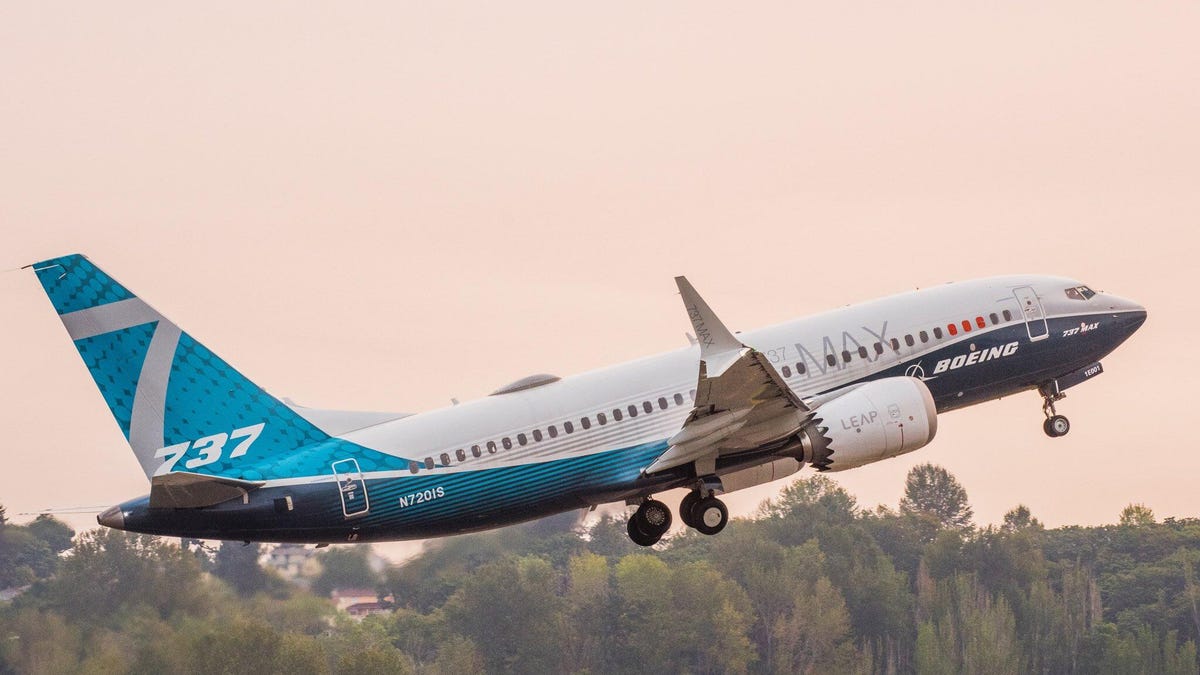Boeing 737 Max certification process was flawed, says federal inspector
In a long report, the Department of Transportation Inspector General identifies "weaknesses" in the FAA's initial review of the airliner.

The 737 was grounded for 20 months after two deadly crashes.
The Federal Aviation Administration's process for certifying the Boeing 737 Max is back under scrutiny after the Department of Transportation inspector general's office said on Wednesday the agency needs to strengthen its aircraft review process. Though the 55-page report said the FAA didn't deviate from an established protocol when it first cleared the plane to fly in 2016, it significantly misunderstood the MCAS flight control system that was blamed for two crashes that killed 346 people.
"[The] FAA's certification guidance does not adequately address integrating new technologies into existing aircraft models," the report said. "Second, [the] FAA did not have a complete understanding of Boeing's safety assessments performed on MCAS until after the first accident."
The two crashes, one in Indonesia in late 2018 and the other in Ethiopia almost two years ago, led to worldwide grounding of the 737 Max family that lasted 20 months. Both incidents were largely caused by MCAS, a new feature on the Max that was designed to push the nose of the airliner down during flight in certain conditions.
After ordering a series of modifications to MCAS and increased pilot training (flight crews initially received little guidance on interacting with MCAS), the FAA lifted its grounding order in November. The plane has returned to service in Brazil, Canada, and in the EU and the UK, as well.
The DOT report also found that the FAA's Boeing Aviation Safety Oversight Office had limited resources -- just 47 employees -- and it recommended changes to a program called Organization Designation Authorization, in which the FAA delegates portions of its aircraft certification process to third-party companies. Boeing used ODA to certify the 737 Max and earlier aircraft like the 787 and 777, meaning that it inspected its own planes under the FAA's guidance.
"We confirmed in interviews with FAA and Boeing ODA representatives that there were instances where the same company engineer worked on a particular design and then approved the design as an ODA unit member," the report said. "This may not provide enough independence and could cause a conflict of duties for those unit members."
The findings mostly echo the conclusion of an independent panel the DOT set up in January 2020 to study how the Max was first certified. Though that committee said the FAA could improve the certification process, it saw no need for substantial changes.
"The Committee found that the FAA's certification system is effective and a significant contributor to the world's safest aviation system," the independent panel's executive summary said. "The [FAA] is keenly aware of the challenges to safety amid a rapidly changing and expanding industry."
At the end of Wednesday's report, the inspector general's office made 14 recommendations, including revising the ODA program requirements to prevent any interference, strengthening communication between all parties involved and improving the protocols for reviewing new technologies. The report also included a statement from the FAA (the FAA is a division of the DOT), which pledged to implement all recommendations.
"The FAA concurs with OIG's recommendations, many of which align closely with those of other reviews and experts, including the Secretary's Special Committee to Review FAA's Aircraft Certification Process," wrote H. Clayton Foushee, the director for the FAA's Office of Audit and Evaluation.
Boeing said a separate statement Wednesday it cooperated fully and extensively with the review. "We appreciate the Inspector General's review of the 737 MAX design and certification, as well as the recommendations to strengthen and improve the regulatory process."

